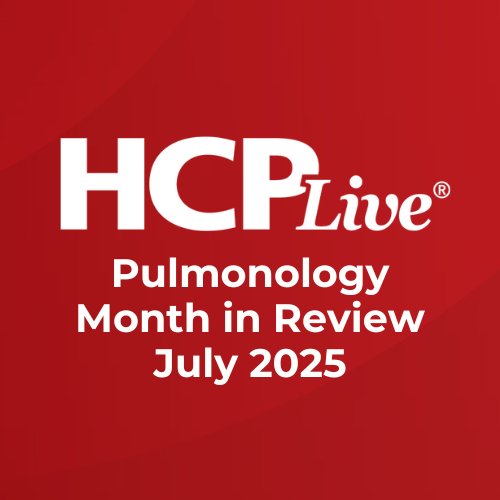In June, asthma care and respiratory medicine were marked by pivotal updates, including new data reinforcing best practices and highlighting potential therapeutic breakthroughs across multiple respiratory and immune-mediated conditions. This month’s news underscores the importance of optimizing asthma management strategies, advancing biologic therapies for chronic airway diseases, and exploring novel interventions for challenging pulmonary disorders.
Among the key developments, a comprehensive meta-analysis confirmed the dangers of short-acting beta-agonist (SABA) overuse, strengthening support for inhaled corticosteroid-based regimens. In chronic rhinosinusitis with nasal polyps and coexisting asthma, dupilumab proved superior to omalizumab in the EVEREST trial, setting a new benchmark for biologic therapy. Positive interim and phase 2b results from trials of efzofitimod and treprostinil palmitil inhalation powder demonstrated encouraging efficacy signals for systemic sclerosis-related interstitial lung disease and pulmonary arterial hypertension, respectively.
Check out this July 2025 pulmonology month in review for a recap of HCPLive’s coverage of the top news and research from the past few weeks:
1. Examining APP-Led Endobronchial Valve Therapy for COPD, with Haley Hoy, PhD, CRNP
HCPLive spoke with Haley Hoy, PhD, CRNP, who discussed the critical role advanced practice practitioners (APPs) can play in improving COPD care, especially in rural outreach settings where they help expedite diagnoses, referrals, and access to treatments like endobronchial valve therapy.
2. Genentech (Roche)’s Astegolimab Shows Mixed Data for COPD
Genentech reported mixed phase 3 results for astegolimab in COPD, with the ALIENTO trial showing a statistically significant 15.4% reduction in annualized exacerbation rate at 52 weeks, while the ARNASA trial failed to meet its primary endpoint despite a similar 14.5% reduction. Neither trial found no new safety signals, but the inconsistent efficacy results may challenge astegolimab’s regulatory path.
3. Heart Failure, AF, and Mortality More Common After RSV Than UTI or Flu Hospitalizations in Older Adults
A retrospective cohort study of adults ≥65 years in Ontario found that 18.5% of those hospitalized with RSV experienced a cardiovascular event within one year, higher than those hospitalized for influenza, UTI, or fracture. RSV hospitalizations were associated with significantly higher risks of subsequent heart failure, atrial fibrillation, ICU admission, and longer hospital stays.
4. New Consensus Aims to Align Post-COVID CT Imaging Practices
A multisociety consensus statement recommends standardized CT imaging practices for post–COVID-19 residual lung abnormalities. Key guidance includes limiting chest CT to patients with persistent symptoms at least 3 months post-infection, using low-dose protocols, and avoiding terms like “interstitial lung abnormality” in favor of “post–COVID-19 residual lung abnormality” to prevent unnecessary workups for fibrosis.
5. The Biologic Era in COPD: What Mepolizumab Approval Means for Exacerbation Control
Joseph Khabbaza, MD, Nikita Desai, MD, and Eric Costanzo, MD, discussed the clinical impact of the FDA approval of mepolizumab for eosinophilic COPD, highlighting its potential to reduce exacerbations and lower corticosteroid dependence in a traditionally treatment-resistant population. Supported by the phase 3 MATINEE trial, mepolizumab marks a shift toward personalized care in COPD, offering a targeted option for the estimated 40% of patients with type 2 inflammation and drawing parallels to the evolution seen in asthma management.
